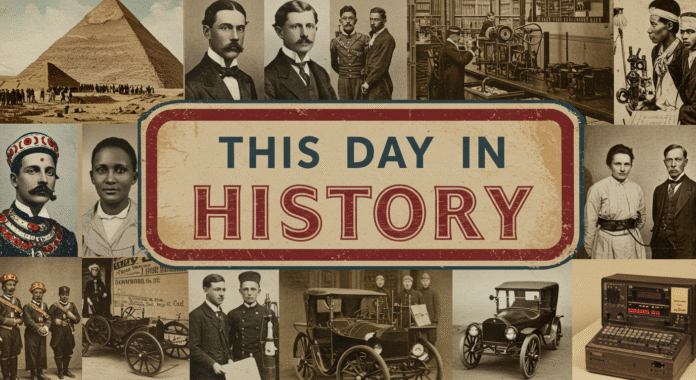1. 1868 – The 14th Amendment to the U.S. Constitution is Ratified
On July 9, 1868, the 14th Amendment was ratified, granting citizenship to “all persons born or naturalized in the United States,” including formerly enslaved individuals. It also promised equal protection under the law—a revolutionary step during the Reconstruction era after the Civil War. The amendment was pivotal in shaping civil rights jurisprudence and served as the legal foundation for landmark decisions like Brown v. Board of Education (1954) and Roe v. Wade (1973).
Significance:
The 14th Amendment remains a cornerstone of American civil liberties and constitutional law. Its equal protection clause is frequently cited in fights for racial justice, gender equality, and LGBTQ+ rights.
Lesser-known fact:
Ohio and New Jersey initially ratified the amendment, then rescinded their approvals under political pressure, only to re-ratify it decades later.
2. 1877 – Wimbledon Hosts Its First Championship
The inaugural Wimbledon tennis tournament began on July 9, 1877, with 22 male players competing at the All England Lawn Tennis and Croquet Club in London. The winner, Spencer Gore, claimed victory in front of about 200 spectators.
Significance:
Wimbledon became the world’s oldest and most prestigious tennis tournament, setting the stage for modern professional tennis. The traditions of all-white dress and grass courts began here.
Lesser-known fact:
The first championship cost only a shilling for spectators, and women weren’t allowed to compete until 1884.
3. 1955 – Russell-Einstein Manifesto Calls for Nuclear Disarmament
On July 9, 1955, Bertrand Russell and Albert Einstein (who had died earlier that year) issued a manifesto warning humanity about the catastrophic consequences of nuclear war. Signed by 11 leading scientists, it urged world leaders to resolve conflicts through peaceful means.
Significance:
This manifesto laid the intellectual groundwork for the Pugwash Conferences on Science and World Affairs, which won the Nobel Peace Prize in 1995 for promoting nuclear disarmament.
Lesser-known fact:
Einstein signed the manifesto just days before his death, making it one of his last public acts.
4. 1982 – Pan Am Flight 759 Crashes in Kenner, Louisiana
Tragedy struck on July 9, 1982, when Pan Am Flight 759 crashed shortly after takeoff from New Orleans International Airport. A microburst-induced wind shear caused the aircraft to lose altitude, killing all 145 people on board and 8 more on the ground.
Significance:
The disaster prompted improvements in wind shear detection technology and flight training, saving countless lives in the years that followed.
Lesser-known fact:
The crash destroyed six homes in the suburb of Kenner, and the site is now a memorial park honoring the victims.
5. 2011 – South Sudan Becomes the World’s Newest Country
After decades of civil war, South Sudan officially declared independence from Sudan on July 9, 2011. The move followed a referendum in which nearly 99% of voters chose secession. Juba became the capital of the new nation.
Significance:
South Sudan’s independence was hailed as a triumph for self-determination. However, the new nation soon faced internal conflict, economic turmoil, and humanitarian crises, highlighting the challenges of state-building.
Lesser-known fact:
South Sudan is one of the few countries created in the 21st century, and it was immediately recognized by the United Nations.



